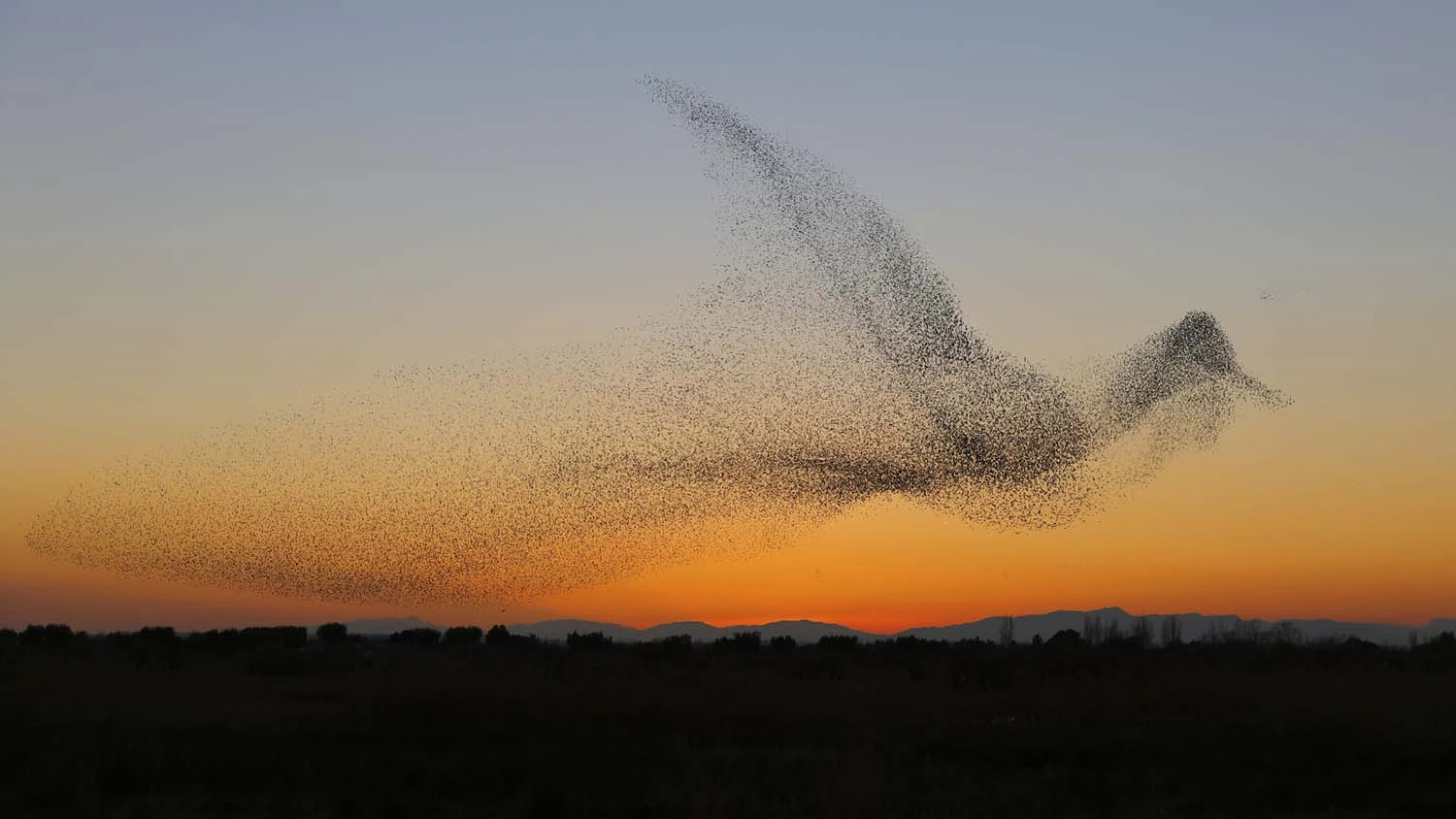A project within a murmuration is accomplished through a unique blend of decentralized collaboration, shared intention, and adaptability. Here’s how it typically unfolds:
-
Idea Generation: A project begins with the emergence of an idea or a shared intention among members. This idea aligns with the philosophy and goals of Project: Murmuration.
-
Open Discussion: The idea is introduced to the community through open discussions. Members contribute their insights, suggestions, and perspectives, creating a diverse pool of thoughts.
-
Formation of Interest Groups: Individuals who resonate with the project’s concept gather naturally around the idea. These interest groups form organically and act as hubs of focused collaboration.
-
Decentralized Planning: Instead of a central authority, the planning process is decentralized. Each interest group autonomously devises strategies, allocates tasks, and outlines milestones.
-
Resource Pooling: Resources, skills, and knowledge are pooled from within the community. Members contribute what they can, aligning with their talents and abilities.
-
Dynamic Adaptation: Murmurations adapt swiftly to changing winds, and similarly, the project adapts as circumstances evolve. Plans are adjusted based on new information, emerging challenges, or unexpected opportunities.
-
Coordinated Action: Interest groups work independently but coordinate their efforts. Regular communication ensures that each group is aware of progress, obstacles, and successes.
-
Cooperative Language: Communication is characterized by cooperative language, fostering unity and understanding among participants. Double-meaning messages and covert signals help identify allies while safeguarding secrecy.
-
Cultural Enrichment: Projects often incorporate elements of cultural enrichment, artistic expression, and education. These aspects align with the project’s philosophy of personal growth and shared well-being.
-
Conflict Resolution: In the event of conflicts or differing opinions, open discussions and conflict resolution mechanisms are employed to ensure harmonious progress.
-
Cross-Pollination: Ideas and insights from different interest groups cross-pollinate, enriching the project with diverse perspectives and approaches.
-
Completion and Celebration: As project milestones are achieved, the community celebrates its successes. Whether it’s a sustainable structure, an artistic creation, or a shared resource, accomplishments are a testament to collective effort.
-
Reflection and Learning: Post-project, the community reflects on the experience. Lessons learned, challenges overcome, and innovative solutions are shared to enrich future endeavors.
-
Continuous Evolution: The completion of one project paves the way for new ones. The community evolves and grows, adapting to changing needs and nurturing an environment of continual innovation and cooperation.
In essence, a project within a murmuration embodies the principles of decentralized collaboration and shared intention. It leverages the collective wisdom and diverse talents of the community, echoing the synchronized yet autonomous nature of murmurations in nature.


You know of the murmuration. Now it’s your choice whether you work cooperatively for the benefit of yourself and your community, or you continue to live in your own cult of competitive hierarchies. Your choice to go your own way serves the flock too.
You are trying to place yourself as a leader of an inherently decentralized concept that you didn’t exactly invent. Is the irony invisible to you?
What makes you think I’m trying to make myself a leader of a project that has no leaders by design?